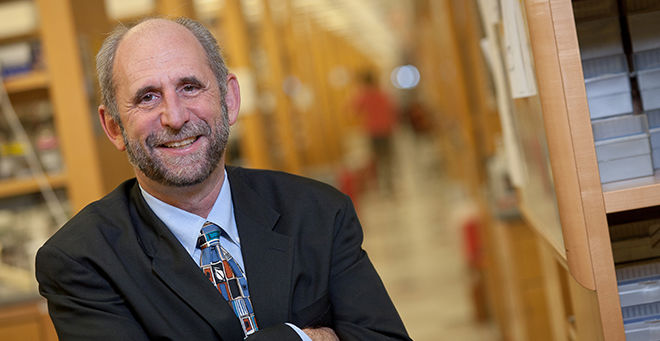As the UMass Chan Medical School community mourns the recent death of Michael Green, MD, PhD, two faculty have been appointed to fill positions that Dr. Green nobly held. Dr. Green led the UMass Cancer Center with the utmost distinction, and served as the chair of the Department of Molecular, Cell & Cancer Biology since its formation in 2015.
Jonathan M. Gerber, MD, has been appointed Green’s successor as director of the UMass Cancer Center, and Michelle A. Kelliher, PhD, will serve as interim chair of the Department of Molecular, Cell & Cancer Biology.

Dr. Gerber, who had been serving as medical director of the Cancer Center, joined UMass Chan in 2018. He is the Eleanor Eustis Farrington Chair in Cancer Research, professor of medicine and molecular, cell & cancer biology, founding director of the Program in Hematology & Oncology Research, and chief of the Division of Hematology & Oncology in the Department of Medicine.
After completing his medical education and training and serving on the hematology faculty at the Johns Hopkins School of Medicine, Gerber joined the newly created Levine Cancer Institute of the Carolinas HealthCare System in Charlotte, North Carolina, to found and lead the Leukemia Program, as well as to help start the Blood and Marrow Transplantation (BMT) Program. Gerber and his team performed the first BMT in an adult in Charlotte in 2014.
Gerber’s clinical interests include leukemia and related diseases, as well as BMT. He is a translational laboratory researcher and an early phase clinical investigator, who has received many awards and grants for his research, published numerous articles, and presented at national and international meetings. His research focuses on improving the identification and targeting of the stem cells at the root of leukemia and similar diseases, with the goal of personalizing therapy and developing better treatments that are more effective and less toxic. The assays he developed to detect leukemia stem cells and distinguish them from their normal counterparts were granted U.S. patents and they have since been translated into the clinical laboratory and clinical trials. More recently, Gerber has expanded his research interests during the COVID-19 pandemic to conduct clinical trials on plasma-based therapies for the treatment of COVID-19.
Gerber has helped shape cancer policy on a national level. He currently serves on the American Society of Hematology Committee on Practice and the Subcommittee on Precision Medicine; he previously served on the American Society of Clinical Oncology Cancer Research and Education committees. He has also served as a board member of the Leukemia & Lymphoma Society in Charlotte and now serves on the New England chapter.

Dr. Kelliher, the inaugural Our Danny Cancer Fund Chair in Biomedical Research I, professor of molecular, cell & cancer biology and co-leader of the Cancer Genetics Research Program, has served multiple leadership roles within Department of Molecular, Cell & Cancer Biology, as chair of the Department Personnel Action Committee and its representative on the Institutional Personnel Action Committee and tenure committees. She is a renowned scientist, impactful mentor and recognized leader in hematological malignancies, cell death and inflammation research.
As a graduate student, Kelliher developed a mouse model of chronic myeloid leukemia that is still widely used today. As a postdoctoral fellow at Harvard Medical School, she was the first to demonstrate that TAL1 is an oncogene that causes leukemia in mice. She also discovered the death domain kinase RIPK1 as a critical regulator of TNF-mediated proinflammatory signaling and cell death.
Since Kelliher joined UMass Chan in 1998, her research laboratory has focused on how the TAL1, LMO and NOTCH1 oncogenes mediate leukemic transformation, and on the identification of novel drug targets to resensitize relapsed pediatric leukemia patients to glucocorticoid therapy. She was first to develop patient-derived xenografts from pediatric leukemia patients to perform preclinical trials of novel targeted therapies. These research contributions have been recognized by the Leukemia and Lymphoma Society of America and the Sidney Kimmel Cancer Research Foundation.
Kelliher has also made major contributions to cell death regulation with the development of RIPK1 knockout, conditional and kinase inactive mice. This work helped elucidate the scaffold and kinase dependent functions of RIPK1 in development, and in autoinflammatory and neurodegenerative disease. Her expertise in inflammatory cell death regulation is now focused on identifying strategies to potentiate antitumor immunity.
Together, Gerber and Kelliher remain committed to advancing Dr. Green’s efforts toward achieving National Cancer Institute designation for the UMass Cancer Center.
